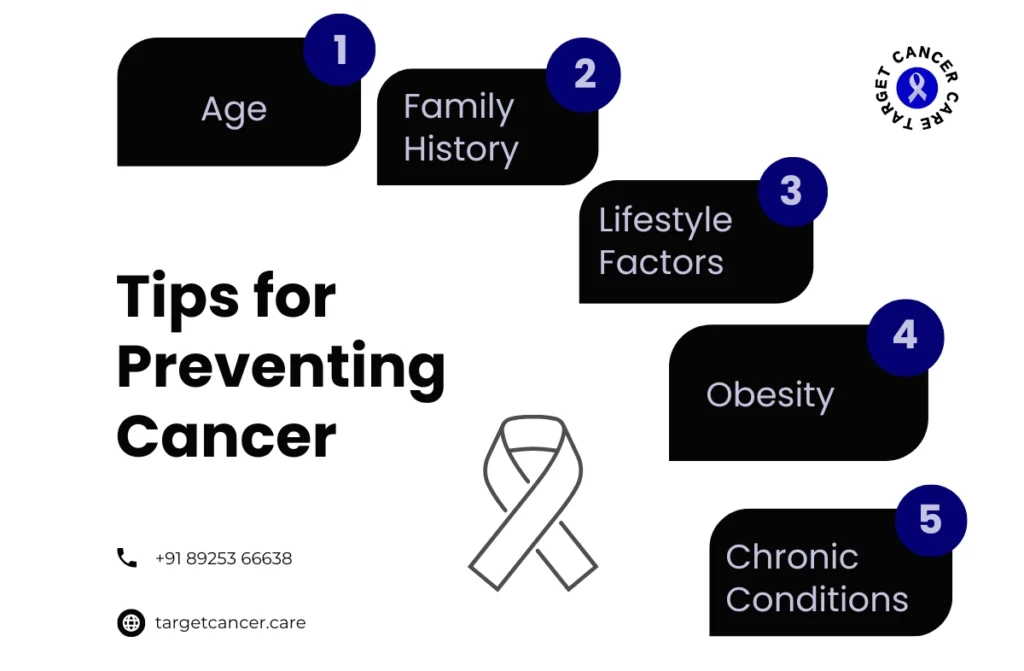Genetic Testing Benefits
Genetic testing in Chennai offers a wide range of benefits, particularly in the field of oncology. It provides insights into inherited genetic mutations that may contribute to cancer development, allowing individuals to take preventive measures.
- Helps identify predisposition to hereditary cancers such as breast, ovarian, and colorectal cancer, allowing individuals to seek early interventions and take necessary precautions.
- Aids in early intervention, improving treatment effectiveness by enabling targeted therapies that are specifically designed for patients with genetic predispositions.
- Assists healthcare professionals in designing personalized treatment plans based on genetic profiles, ensuring that the most suitable medications and therapies are administered.
- Provides essential information for family members who may also be at risk, helping them undergo early screening and adopt preventive healthcare measures.
- Reduces uncertainty by clarifying genetic risks, enabling informed health decisions regarding lifestyle modifications and medical surveillance.
- Understanding genetic testing cost in Chennai helps individuals make informed choices regarding healthcare expenses and financial planning for diagnostic procedures.
- Genetic testing in Chennai is increasingly recommended for individuals with a strong family history of cancer, helping them gain clarity about their genetic health risks.
Types of Genetic Tests
Genetic testing in vadapalani encompasses various methods tailored to specific conditions and risk factors. Understanding these types ensures appropriate test selection for accurate diagnosis and prevention.
- Predictive Testing: Determines an individual’s risk of developing inherited diseases before symptoms appear, allowing proactive monitoring and preventive measures to reduce complications.
- Carrier Testing: Identifies genetic mutations that may be passed on to offspring, assisting couples in making informed reproductive decisions and ensuring early diagnosis in children.
- Diagnostic Testing: Confirms the presence of genetic mutations in symptomatic individuals, enabling early diagnosis and targeted treatment approaches that improve patient outcomes.
- Pharmacogenomic Testing: Helps predict how a patient will respond to specific medications, ensuring precision medicine and reducing the risk of adverse drug reactions.
- Prenatal and Newborn Testing: Detects genetic abnormalities in developing fetuses and newborns, allowing for early medical interventions and specialized neonatal care when required.
- Genetic testing cost in Chennai varies depending on the complexity and scope of the test required, making it essential for individuals to explore available financial options.
- Genetic testing in vadapalani offers comprehensive diagnostic solutions for hereditary diseases, providing advanced screening tools for accurate risk assessment.
Genetic Testing Accuracy
Genetic testing in Chennai is highly reliable, offering precise results that guide medical decisions. However, various factors influence accuracy, including sample quality and test type.
- Most tests have a 99% accuracy rate in detecting known genetic mutations, making them a highly dependable tool in clinical diagnostics and genetic risk assessments.
- False positives and false negatives can occur, necessitating confirmation through additional testing to eliminate errors and ensure reliable results for critical medical decisions.
- Accuracy depends on the specific genetic markers analyzed and the laboratory’s testing standards, requiring testing centers to adhere to the highest quality protocols.
- Professional genetic counseling ensures accurate interpretation of test results, helping individuals and families understand the implications and potential health risks.
- Advanced sequencing technologies continue to enhance precision and reliability, reducing errors and increasing the effectiveness of genetic disease screening.
- Individuals considering genetic testing in vadapalani should seek experienced professionals for optimal results, ensuring that the test is conducted and interpreted correctly.
- Genetic testing in Chennai continues to evolve with advancements in next-generation sequencing, offering more accurate and efficient diagnostic capabilities for inherited diseases.
DNA Testing Process
The DNA Test in Chennai involves a systematic process to ensure comprehensive analysis and accurate results. Each step is critical in obtaining meaningful genetic insights.
- Sample Collection: DNA is extracted from saliva, blood, or tissue samples collected through non-invasive or minimally invasive procedures, ensuring patient comfort.
- Laboratory Analysis: Advanced techniques such as Next-Generation Sequencing (NGS) are used to detect mutations with high precision, ensuring accurate identification of genetic variations.
- Data Interpretation: Genetic counselors analyze the findings to assess health risks and guide individuals on preventive healthcare measures based on their genetic profile.
- Report Generation: A detailed report is provided with explanations of detected genetic variations, allowing individuals to understand their genetic predisposition to diseases.
- Follow-up Consultation: Healthcare professionals discuss results and recommend necessary medical actions, including lifestyle modifications, preventive therapies, or treatment plans.
- The DNA Test in Chennai is instrumental in diagnosing inherited conditions and guiding precision treatments tailored to an individual’s unique genetic makeup.
- DNA Test in Chennai plays a crucial role in identifying genetic mutations linked to cancer, enabling targeted screenings and early interventions for at-risk individuals.
Genetic Screening Uses
Genetic screening serves various medical and preventive purposes, significantly enhancing healthcare outcomes. It plays a vital role in both individual and familial health assessments.
- Identifies inherited conditions that may increase cancer risk, allowing for proactive screening and lifestyle modifications to reduce the likelihood of disease onset.
- Assists in selecting the most effective treatment for diagnosed patients, enabling precision medicine that maximizes treatment success and minimizes adverse effects.
- Provides essential insights for reproductive planning in couples, allowing them to make informed decisions about pregnancy and the potential risks of passing on genetic disorders.
- Detects genetic disorders in newborns, ensuring early medical intervention and improved prognosis through specialized neonatal care and targeted treatments.
- Helps researchers advance precision medicine through genetic data analysis, contributing to the development of more effective therapies and personalized treatment options.
- DNA Test in Chennai enables individuals to gain deeper insights into their genetic predispositions, supporting early disease prevention strategies and risk assessment.
- Genetic testing in vadapalani supports genetic counseling for families with hereditary conditions, ensuring they receive appropriate guidance and healthcare management plans.
Why Choose Us for Genetic Testing in Chennai?
Choosing the right center for genetic testing in Chennai is important to get accurate and reliable results. Here’s why you should choose us:
- Experienced Specialists: Our team includes experts in genetics and counseling.
- Advanced Technology: We use state-of-the-art equipment for precise results.
- Affordable Costs: Genetic testing cost in Chennai varies, but we offer competitive pricing.
- Personalized Reports: Each test is analyzed carefully and explained in simple terms.
- Convenient Location: If you’re searching for genetic testing in Vadapalani, we have a center near you.
Choosing the right testing center ensures reliable results and better health planning.





